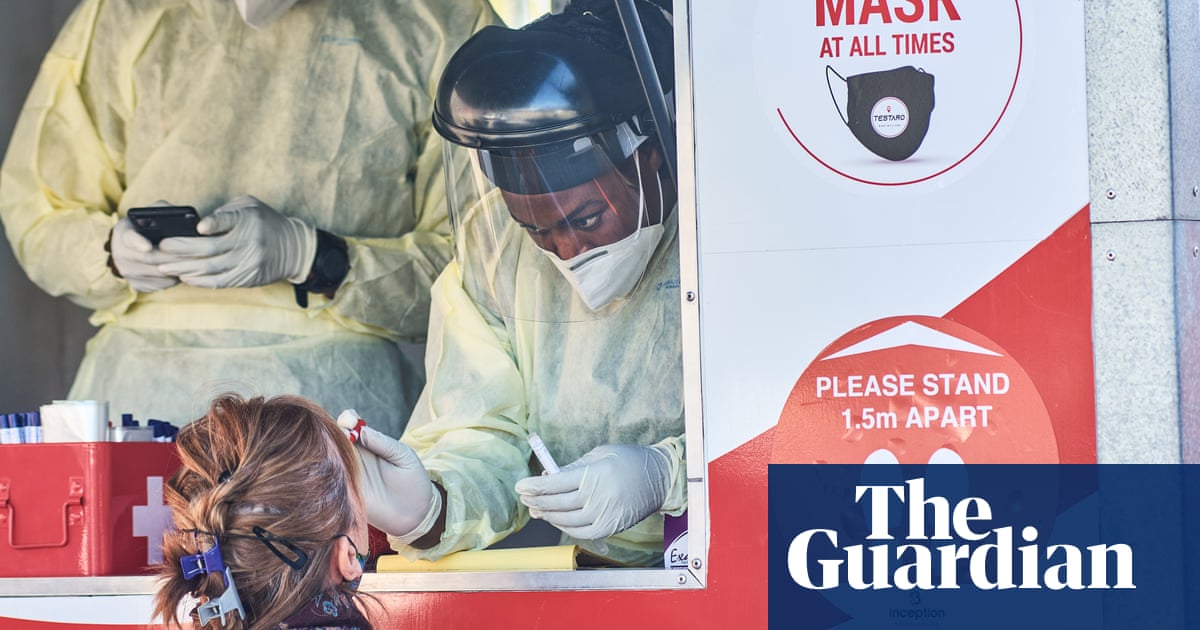
A new variant of Covid-19 is driving a surge in cases in southern Africa and leading scientists have called for immediate travel restrictions.
The variant, which was only identified on Tuesday, initially sparked concern because it carries an extremely high number of mutations that could allow it to evade immunity. The variant appears to be more transmissible and is already present in provinces throughout the country according to the latest data presented by South African scientists on Thursday.
The deputy director general of the European Molecular Biology Laboratory and a member of Spi-M called for travel restrictions to be placed on southern Africa.
He urged countries to act quickly. He said that they have learned from the other situations that you have to be paranoid.
The strain was identified after a surge of cases in an urban area. The increase in socializing was thought to be the reason for the cluster of cases.
The variant was identified as a potential cause of the increase this week. A case of the variant was found in Hong Kong after a trip to South Africa, and the first one was collected in Botswana on November 11.
In the past 48 hours, South African scientists reviewed the data from the Gauteng region and found that the new variant was behind the increase in cases.
The number of infections in South Africa increased to 1,200 on Wednesday, up from 106 earlier in the month.
In a hastily called news conference on Thursday, a researcher said that there are early signs that the lineage has increased in prevalence in the province of Gauteng.
Prof Anne von Gottberg, clinical microbiologist and head of respiratory diseases at the National Institute of Communicable Diseases in South Africa, said there were now around 100 cases confirmed through full sequence of samples, up from 10 reported yesterday.
Two weeks ago, the distribution was mostly in the area related to the outbreak, but now the cases and the percentage case positivity is moving into other districts and subdistricts. It is definitely spreading to other districts, even though it might have been local to start with.
The severity of the variant will be determined in the coming days and weeks, according to Prof Richard Lessells. He said that at the beginning of a resurgence, we sometimes get fooled into thinking that everything is milder than it really is.
He said that the variant might be able to get around parts of the immune system and the protection we have in our immune system.
If the variant was found to be less of a concern than feared, then new controls should be brought in immediately.
The UK should get ahead of this right now, according to Prof Christina Pagel. It is not here yet, as far as we know. Adding South Africa and close neighbours to the red list seems sensible because of UK status as an international travel hub, very few restrictions in UK and the worrying signs from South Africa, we must act now or risk it being too late.
No countries on the red list imposeQuarantine on travellers arriving from abroad. Before flying, people who are not fully vaccine-free need to test negative and have two tests on arrival. The Covid test needs to be had within two days of landing.
The World Health Organization is closely monitoring the reported variant and is expected to convene a technical meeting on Friday to determine if it should be designated a variant of interest or concern.
A No 10 spokesman said: "We have one of the largest genomic sequencing programmes here in the UK that allows us to spot and track variant as they emerge and, as we have done throughout the pandemic, we will continue to keep an eye and keep this particular variant under investigation."
The spokesman said that the latest scientific evidence and data would be under review and that travel restrictions would not be needed before Christmas. We will continue to monitor this variant and other variant in the same way that we have done throughout the Pandemic, if we believe we need to take action.
